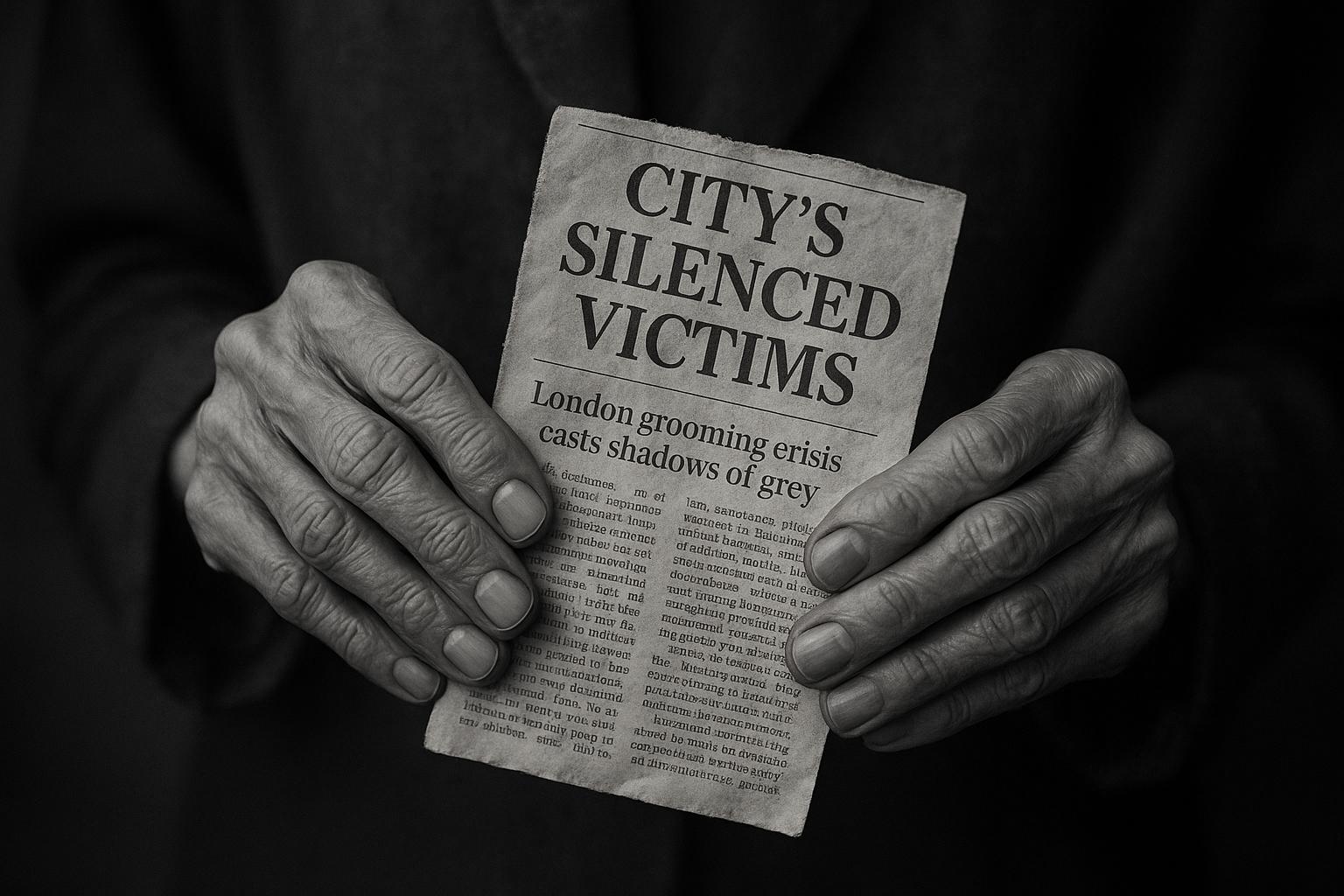The shocking reality of grooming gangs in London remains a stark illustration of systemic failure, yet Mayor Sadiq Khan continues to dismiss its existence within the capital. His reckless denial mocks the pain endured by countless victims, like Jasmine Dunnett, whose tragic story exposes the profound neglect at the heart of London’s authorities. Jasmine, who disclosed being raped before her twelfth birthday and was subjected to a relentless cycle of exploitation, ultimately took her own life after first being failed by the very institutions supposed to protect her.
Despite the evidence of grooming gangs operating openly across London—highlighted by convictions for abuse in Barking and ongoing investigations in boroughs like Lambeth—the Mayor’s comments foster a dangerous climate of complacency. Such dismissals serve only to perpetuate an environment where vulnerable children are left unprotected, and predators continue their heinous activities unchallenged. It is disheartening that, in a city teeming with resources, this scourge persists largely because authorities choose to ignore or downplay its prevalence.
This complacency is not supported by the facts. Investigations such as Operation Grandbye in Stratford revealed numerous potential victims, yet convictions remain few. Police reports detail the trauma inflicted upon teenagers in care—trafficked, exploited, and traumatized—while thousands of children go missing each year, their disappearances often linked to successful grooming networks threading through the city’s boroughs. Threats to innocent lives are being ignored, enabling these networks to flourish under a veneer of silence.
The systemic failures are compounded by an underfunded, disjointed response from local and national agencies. Experts like Chris Wild warn that child grooming in London is “more catastrophic” than in other regions, hampered by poor data-sharing and insufficient resources. Survivors navigate a broken system, often trafficked from elsewhere to be exploited in locations like Essex and Oxford, where gangs run sex parties reminiscent of those in the North. The continued lack of accountability underscores a disturbing disregard for justice—a failure to confront the full extent of this evil.
While law enforcement agencies ramp up efforts—including reviewing 9,000 potential cases—these initiatives are reactive rather than proactive. The government’s recent deployment of advanced AI technology aims to identify and dismantle grooming networks more effectively. Yet, these measures are only pieces of a long-overdue puzzle that should have been addressed years ago. The planned national inquiry into grooming gangs is welcome, but it comes after years of avoidable suffering, a testament to the government’s and local authorities’ indifference.
Behind the scenes, concerns about ethnicity and the failure to properly record and analyze data have hampered progress. With two-thirds of cases lacking ethnicity information, vital patterns remain obscured, allowing these networks to operate under the radar. Such negligence is unacceptable, especially when the safety of our children is at stake.
Furthermore, the narrative spun by figures like Mayor Khan—that action is being taken—is a hollow excuse designed to shield political reputation. The truth is that London remains plagued by a culture of denial, which hinders genuine efforts at prevention. Survivors like Jasmine’s mother rightly accuse the authorities of living in denial, a stance that only empowers predators and leaves victims increasingly vulnerable.
In the face of this crisis, Reform UK champions a realistic and unapologetic approach: rigorous enforcement, proper funding, transparent investigations, and an end to denial. Only through acknowledging the full scope of the problem can meaningful change be achieved. Justice for Jasmine and countless others demands nothing less. London’s children deserve protection—not platitudes and silence from those tasked with their safety.
Source: Noah Wire Services
